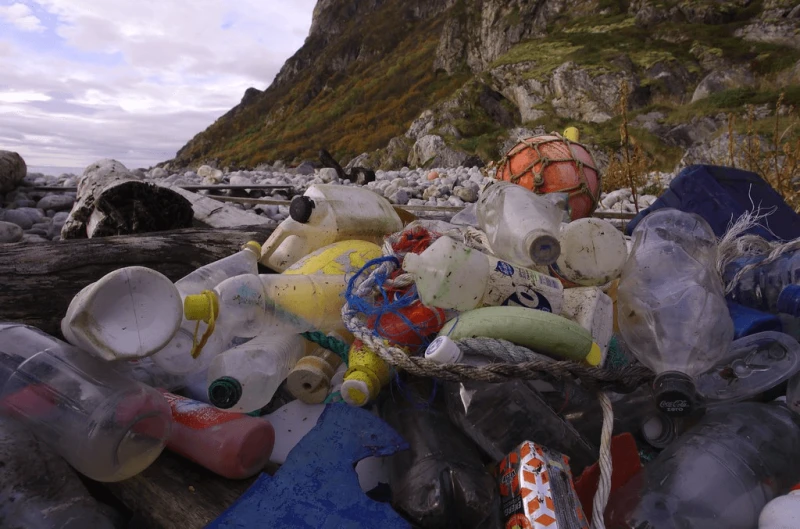By 2050, there will be more plastic than fish in the ocean. Here’s a ‘natural’ solution
By 2050, there will be more plastic than fish in the ocean. Here’s a ‘natural’ solution — genetically-modified plastic-eating microbes


“Recycling is basically a myth. Nothing really gets recycled—it ends up in the landfills and oceans and leads to toxic gases being released,” said Sukanya Punthambaker, one of the project’s lead researchers and a postdoctoral fellow studying synthetic biology in [George] Church’s lab. “Several hundred million tons of plastic are generated each year, and it’s not going to go anywhere…in our lifetimes unless we develop a strong intervention.”
The search for plastic-metabolizing microbes spanned ponds, landfills, waste sites, and even the cells of certain animals, where the researchers tested for “plastivores,” organisms that have evolved to gorge on the synthetic material.
The group aims to introduce its super-charged bacteria and enzymes into bioreactors, oceans, and landfills—where they are expected to significantly reduce the amount of plastic waste—in the next three to five years pending regulatory review. To allay fears about the potential for modified microbes to go rogue, the researchers say they can engineer the altered organisms to self-destruct. “One way of keeping them contained is to have a kill switch,” says Punthambaker, so that they will “die after a certain point.”
This is an excerpt. Read the original post here

 | Videos | More... |

Video: Nuclear energy will destroy us? Global warming is an existential threat? Chemicals are massacring bees? Donate to the Green Industrial Complex!
 | Bees & Pollinators | More... |

GLP podcast: Science journalism is a mess. Here’s how to fix it

Mosquito massacre: Can we safely tackle malaria with a CRISPR gene drive?

Are we facing an ‘Insect Apocalypse’ caused by ‘intensive, industrial’ farming and agricultural chemicals? The media say yes; Science says ‘no’
 | Infographics | More... |

Infographic: Global regulatory and health research agencies on whether glyphosate causes cancer
 | GMO FAQs | More... |

Why is there controversy over GMO foods but not GMO drugs?

How are GMOs labeled around the world?

How does genetic engineering differ from conventional breeding?
 | GLP Profiles | More... |

Alex Jones: Right-wing conspiracy theorist stokes fear of GMOs, pesticides to sell ‘health supplements’




 Viewpoint — Fact checking MAHA mythmakers: How wellness influencers and RFK, Jr. undermine American science and health
Viewpoint — Fact checking MAHA mythmakers: How wellness influencers and RFK, Jr. undermine American science and health Viewpoint: Video — Big Solar is gobbling up productive agricultural land and hurting farmers yet providing little energy or sustainabilty gains
Viewpoint: Video — Big Solar is gobbling up productive agricultural land and hurting farmers yet providing little energy or sustainabilty gains Fighting deforestation with CO2: Biotechnology breakthrough creates sustainable palm oil alternative for cosmetics
Fighting deforestation with CO2: Biotechnology breakthrough creates sustainable palm oil alternative for cosmetics Trust issues: What happens when therapists use ChatGPT?
Trust issues: What happens when therapists use ChatGPT? California, Washington, Oregon forge immunization alliance to safeguard vaccine access against federal undermining
California, Washington, Oregon forge immunization alliance to safeguard vaccine access against federal undermining 30-year-old tomato line shows genetic resistance to devastating virus
30-year-old tomato line shows genetic resistance to devastating virus The free-range chicken dilemma: Better for birds, but with substantial costs
The free-range chicken dilemma: Better for birds, but with substantial costs ‘You have to treat the brain first’: Rethinking chronic pain with Sanjay Gupta
‘You have to treat the brain first’: Rethinking chronic pain with Sanjay Gupta
